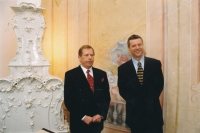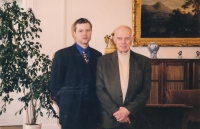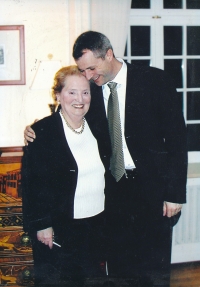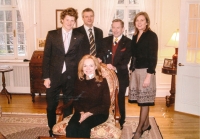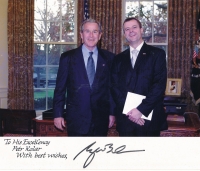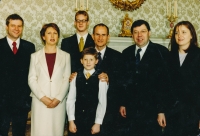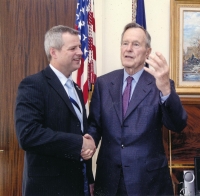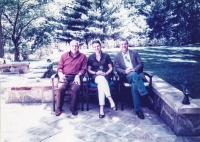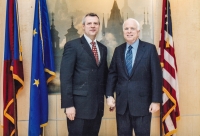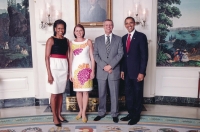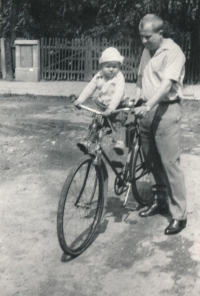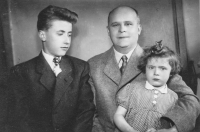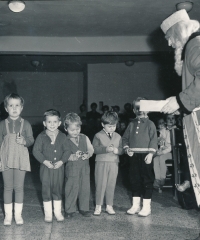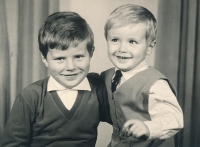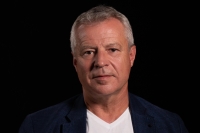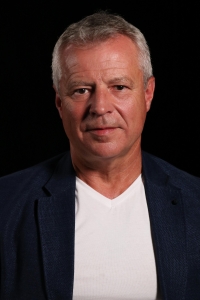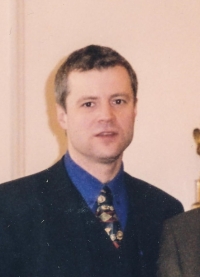They put a gun to my head: Be a candidate for Party membership, or just leave

Download image
Petr Kolář was born in České Budějovice on 27 September 1962. As his parents Marie Kolářová and Josef Kolář were still students, he spent a large part of his childhood with his grandparents in Ostrava. Their upbringing ingrained in him the principles and values that informed his adolescence, and he did not abandon them when he grew up. He experienced the invasion of the Warsaw Pact armies of August 1968 in Ostrava. His father, a member of the Communist Party of Czechoslovakia (CPC) since youth, quit the party after August 1968. This affected Petr Kolář’s life later on – a university would not admit him because of that. He completed his secondary education in 1981 by graduation at the grammar school in Baumanské square. He wanted to study history and become a teacher, but the regime would not allow him even though he managed the admission tests very well. At that time, his name appeared in the list of those who were not allowed to study because of their parents’ political stances. With that, he was eventually admitted, further to an appeal lodged with the Rector, to the Scientific Information and Librarianship programme at the Faculty of Arts, Charles University. Later on, he added a curriculum in ethnography. Having successfully passed his state final examination, he joined the Institute of Ethnographic and Folklore Studies of the Czechoslovak Academy of sciences (CSAS) in 1986. He was eventually forced to leave because he refused to join the CPC. He worked in various positions inadequate to his qualification. Ondřej, Petr and Jaroslava Kolářs’ first son, was born in 1984; they lived in Prague together. They decided to emigrate from Czechoslovakia to Canada at the turn of 1987/1988. Petr Kolář left for western Germany, intending to arrange the arrival of the rest of the family through the Red Cross. Their son fell ill, so he eventually came back. He served in the military in České Budějovice from 1988, and was reassigned to Kladno later on. He took part in many anti-regime demonstrations in 1989. He was working at the Peace and Disarmament Issues Research Centre of CSAS. Following the Velvet Revolution, he joined the Institute of Contemporary History of the Czech Academy of Sciences. Vilém Prečan, the director of the Institute, arranged an internship in the USA for him in 1991. He went on to stay in London later on, and spent the first six months of 1993 at the Norwegian Nobel Institute in Oslo. He was the Head of the Department of Fellow Countrymen’s and Non-government Contact of the Ministry of Foreign Affairs in 1993–1995, and of the Third Territorial Department for Eastern and Southern Europe from the next year. He left for Sweden as the Czech Ambassador in 1996. He resigned from his position in 1998. He worked as a consultant for European Integration and the Balkans at the Office of the President of the Czech Republic until 1999. He was the Czech Ambassador to Ireland in 1999–2003, to the USA in 2005–2010, and to Russia in 2010–2013.
